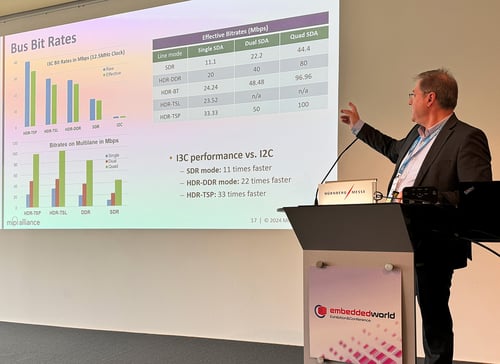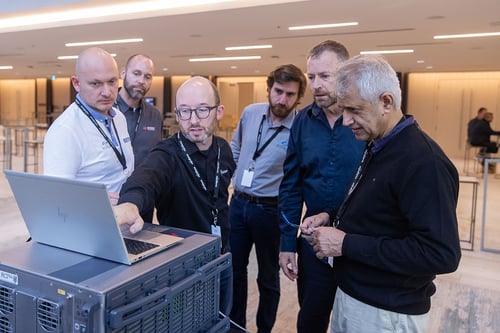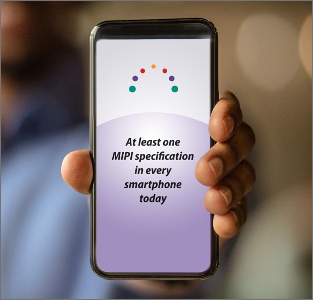2 min read
Coming This Month: Two Days, Six Webinars – Explore MIPI Specifications in Next-Generation Automotive E/E Architectures
![]() Dervla O'Reilly, MIPI Senior Event Manager
:
1 May 2024
Dervla O'Reilly, MIPI Senior Event Manager
:
1 May 2024
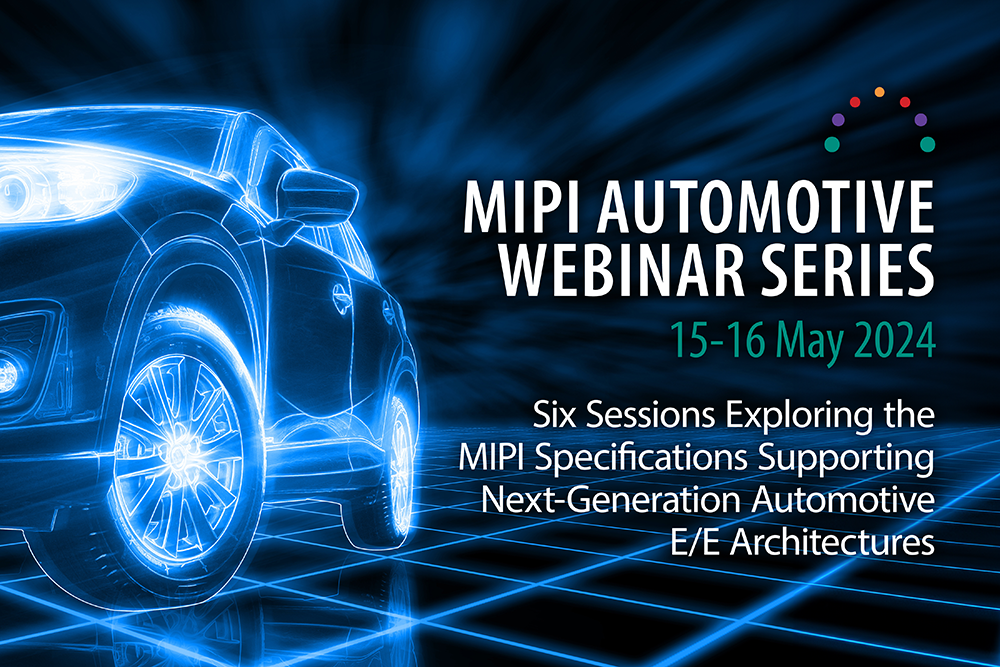
- News & Events
- News
- Blog
Are you interested in learning more about the latest developments in automotive? Join us on 15-16 May for the next MIPI webinar series—a deep dive into MIPI automotive initiatives supporting and streamlining the integration of state-of-the-art images sensors and displays into next generation E/E architectures.
Presented by the developers and implementers of MIPI specifications, the MIPI Automotive Webinar Series will include six sessions, covering everything from functionally safe camera applications, to display specifications that meet growing bandwidth and safety requirements, to A-PHY implementation and the development of an A-PHY Compliance Program. You’ll also hear about real-world applications of MIPI interfaces in the automotive market and have the opportunity to get your questions answered by the experts.
The series is targeted for automotive developers, system architects and engineering managers who are focused on the development, integration and test of next-generation advanced driver-assistance systems (ADAS), autonomous driving systems (ADS), automotive machine vision systems, and in-vehicle display systems.
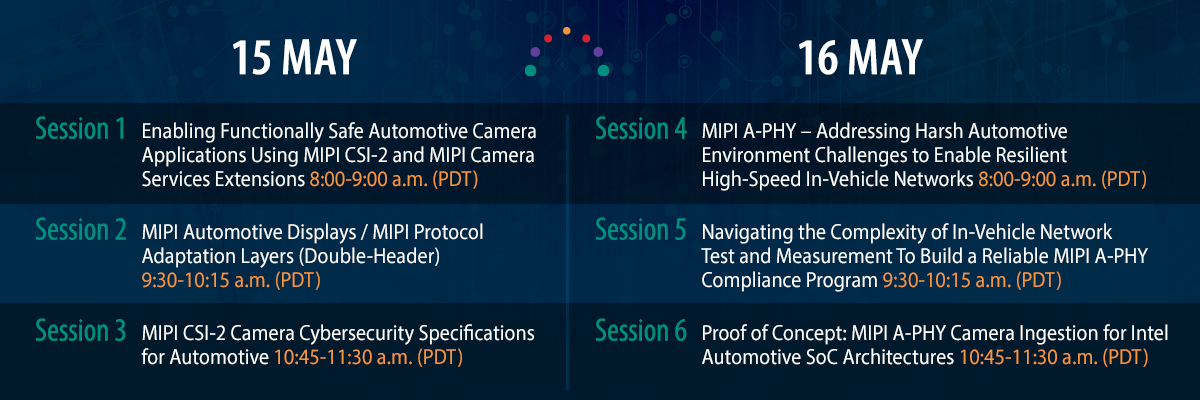
Session Lineup
View the complete session descriptions and read more about the presenters »
May 15
- Enabling Functionally Safe Automotive Camera Applications Using MIPI CSI-2 and MIPI Camera Services Extensions
8-9 a.m. (PDT)
Presenters: Peter Lefkin, Haran Thanigasalam and Ariel Lasry
After a short introduction to the use of MIPI specifications within the automotive market, this session will focus on the use of the MIPI Camera Serial Interface 2 (CSI-2®) camera protocol and associated MIPI Camera Services Extensions (CSE℠) specification to enable functionally safe and secure automotive camera applications. - MIPI Automotive Displays and MIPI Protocol Adaptation Layers (Double-Header)
9:30-10:15 a.m. (PDT)
Presenters: Ariel Lasry and Nadav Banet
Part 1: Using MIPI Display Specifications To Meet the Growing Bandwidth and Safety Requirements of Next-Generation Automotive Displays
Part 2: How MIPI Protocol Adaptation Layers Enable MIPI Higher Layer Protocols Over Automotive In-Vehicle Networks - MIPI CSI-2 Camera Cybersecurity Specifications for Automotive
10:45-11:30 a.m. (PDT)
Presenter: Rick Wietfeldt
This session will describe the approach MIPI has undertaken, through provisions in four upcoming specifications, to secure connections between MIPI CSI-2 image sensors and their related ECUs from the perspectives of authentication, integrity and confidentiality.
16 May
- MIPI A-PHY High-Speed Automotive SerDes Interface – Addressing Harsh Automotive Environment Challenges to Enable Resilient High-Speed In-Vehicle Networks
8-9 a.m. (PDT)
Presenters: Edo Cohen, Raj Kumar Nagpal and Eyran Lida
This session will take a deep dive into MIPI A-PHY® and explain how the interface is designed to operate in harsh automotive environments that include sudden and prolonged attacks of electromagnetic interference, and dynamic channel response variations caused by thermal and humidity fluctuations. - Navigating the Complexity of In-Vehicle Network Test and Measurement To Build a Reliable MIPI A-PHY Compliance Program
9:30-10:15 a.m. (PDT)
Presenters: Kevin Kershner, joined by Tom Kopf for Q&A segment
This session will explain why a standardized compliance test specification and compliance program are essential enablers for new in-vehicle network technologies. With specific focus on MIPI A-PHY electrical testing, this session will highlight key requirements from the MIPI A-PHY compliance test specification and explain the general architecture of the MIPI A-PHY compliance program. - Proof of Concept: MIPI A-PHY Camera Ingestion for Intel Automotive SoC Architectures
10:45-11:30 a.m. (PDT)
Presenters: Frederik John and Stephanie Friederich
This session focuses on Intel’s MIPI A-PHY proof of concept (PoC) that demonstrates the enablement of A-PHY links on the Intel x86 based automotive platform.




